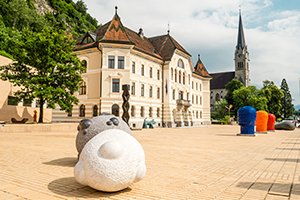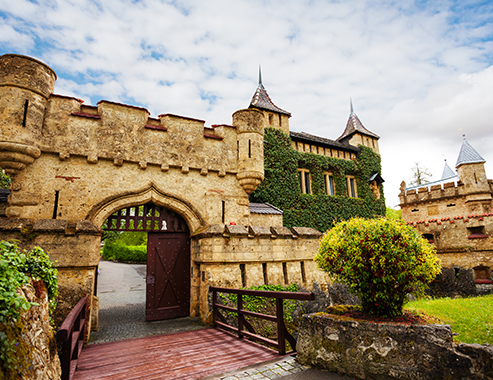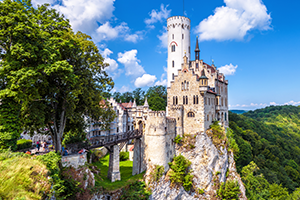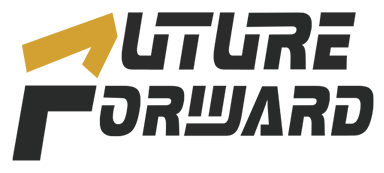


Lichtenstein
Nestled between Switzerland and Austria, Liechtenstein is a picturesque principality in Central Europe. Despite its small size, this landlocked country is renowned for its stunning alpine landscapes and charming villages. Its temperate climate, with warm summers and mild winters, makes it an ideal destination for summer hiking and winter sports.
Liechtenstein is famous for its strong banking sector, high standard of living, and as a haven for businesses due to its favourable tax laws. The capital, Vaduz, is home to the impressive Vaduz Castle and the Liechtenstein National Museum, which showcase the country’s rich history and cultural heritage. Additionally, the principality is known for its vibrant arts scene, annual festivals, and well-preserved medieval castles.
Economically, Liechtenstein boasts one of the highest GDP per capita in the world, driven by its diversified economy that includes finance, manufacturing, and services. The country has a robust industrial sector, producing high-tech goods and precision instruments. Despite its small population, Liechtenstein’s economic stability and prosperity make it a significant player on the global stage.
Visa Eligibility, Types and Process
Visa Eligibility
Liechtenstein’s job market is diverse and dynamic, characterised by strong finance, manufacturing, and services sectors. The country’s robust banking and financial services industry is a major employer, attracting professionals worldwide. Additionally, Liechtenstein is home to numerous high-tech manufacturing companies, producing precision instruments, machinery, and dental products. The small but vibrant job market also benefits from the country’s proximity to Switzerland and Austria, allowing for a seamless flow of cross-border workers.
Securing a work visa in Liechtenstein involves several criteria and steps, reflecting the country’s controlled immigration policy:
- Job Offer: Applicants must have a valid job offer from an employer in Liechtenstein.
- Sponsorship: The employer must act as the visa sponsor, initiating the application process.
- Residence Permit: Foreign nationals need a residence permit, usually granted alongside the work visa.
- Quota System: Liechtenstein operates a quota system for foreign workers, limiting the number of permits issued annually. This system prioritises residents from European Economic Area (EEA) countries.
- Skill Requirement: The job should require skills or expertise that are in demand and not readily available in the local labour market.
- Document Preparation: Applicants must ensure all required documents, including proof of qualifications, employment contract, and personal identification, are submitted and meet the standards set by immigration authorities.
- Approval from Authorities: The Migration and Passport Office and the Liechtenstein government must review and approve the application.
Application Process
Obtaining a work visa in Liechtenstein involves navigating a structured application process designed to ensure that the employment of foreign nationals aligns with the country’s economic needs and immigration policies. The process is administered by the Migration and Passport Office, ensuring compliance with Liechtenstein’s immigration laws.
- Secure a Job Offer: Obtain a valid job offer from a Liechtenstein-based employer willing to sponsor the visa application.
- Employer Sponsorship: The employer initiates the application by submitting a request for a work permit to the Migration and Passport Office.
- Quota Consideration: The application is subject to the country’s annual quota for foreign workers, particularly for non-EEA nationals.
- Document Submission: Prepare and submit all required documents, including the employment contract, proof of qualifications, personal identification, and any other relevant paperwork.
- Residence Permit Application: Alongside the work permit, apply for a residence permit, which is necessary for staying in Liechtenstein for the duration of the employment.
- Review and Approval: The Migration and Passport Office reviews the application, ensuring all criteria are met and that the job cannot be filled by a local resident.
- Decision Notification: Upon approval, the applicant is notified, and the visa is issued. If additional information or corrections are needed, the office will contact the applicant or employer.
- Entry and Registration: Once the visa is issued, the applicant can enter Liechtenstein. Upon arrival, they must register with local authorities and obtain a residence card.
The work visa application process in Liechtenstein typically takes between 4 to 8 weeks. This timeframe includes the submission, review, and approval stages, although it may vary depending on the complexity of the application and the current quota status. Delays can occur if additional documentation is required or if the application needs further verification.
Visa Types
In Liechtenstein, work visa applications are processed by the Migration and Passport Office. This department is responsible for handling all aspects of immigration, including the issuance of work permits, residence permits, and other necessary documentation for foreign nationals seeking employment in the country.
Short-Term Work Permit
Allows employment in Liechtenstein for up to 12 months, suitable for temporary assignments or projects.
Long-Term Work Permit
Grants the right to work for more than 12 months, typically used for permanent or long-term employment contracts.
Cross-Border Commuter Permit
Issued to residents of neighboring countries (such as Switzerland and Austria) who commute to work in Liechtenstein but do not reside there.
Visa Fees
The fees for obtaining a work visa in Liechtenstein can vary based on the type of visa and the duration of stay. Here’s a general overview of the typical costs:
1. Application Fee
There is usually an initial application fee for processing the work visa, which can range from CHF 100 to CHF 250.
2. Residence Permit Fee
In addition to the work visa, applicants must also obtain a residence permit, which typically costs around CHF 150 to CHF 300.
3. Renewal Fees
If the work visa or residence permit needs to be renewed, additional fees similar to the initial application may apply.
4. Additional Fees
Additional costs may include administrative fees, processing charges, and any services provided by agents or consultants assisting with the application. It’s advisable to check with the Migration and Passport Office or the sponsoring employer for the most accurate and up-to-date fee structure.
Benefits of Working in Lichtenstein
01
High Standard of Living: Enjoy one of the highest standards of living in the world, with excellent public services, healthcare, and education.
02
Competitive Salaries: Benefit from competitive salaries and a favorable tax system that ensures higher net incomes compared to many other countries.
03
Economic Stability: Work in a stable and prosperous economy with low unemployment rates and a strong industrial and financial sector.
04
Safety and Security: Live in a safe and secure environment with low crime rates, making it ideal for families and individuals alike.
05
Scenic Beauty: Experience stunning alpine landscapes and outdoor activities, from skiing and hiking to cycling and nature walks.
06
Cross-Border Opportunities: Take advantage of Liechtenstein’s strategic location and the ease of commuting to neighboring Switzerland and Austria for work or leisure.
07
Multicultural Environment: Be part of a diverse and multicultural community that values inclusivity and international cooperation.
08
Professional Growth: Access opportunities for professional development and career advancement in a country known for its innovation and high-quality industries.
09
Work-Life Balance: Enjoy a balanced lifestyle with generous vacation days, reasonable working hours, and a strong emphasis on personal well-being.
10
Cultural Richness: Engage with a rich cultural scene, including museums, galleries, music festivals, and historical sites.
Conclusion
Liechtenstein offers a unique and attractive environment for professionals, combining a high standard of living with economic stability and natural beauty. Its robust job market, particularly in finance, manufacturing, and high-tech industries, provides ample opportunities for skilled workers.
Obtaining citizenship in Liechtenstein is a challenging process that generally requires long-term residency, proficiency in the national language, and integration into the local community. Applicants must usually have lived in Liechtenstein for at least 10 years, with continuous residency and active participation in the country. Regarding insurance benefits, Liechtenstein offers comprehensive health insurance options, typically provided through employers, which cover a range of medical services and ensure access to high-quality healthcare. Living and working in this charming principality is made more appealing overall by this perk.
